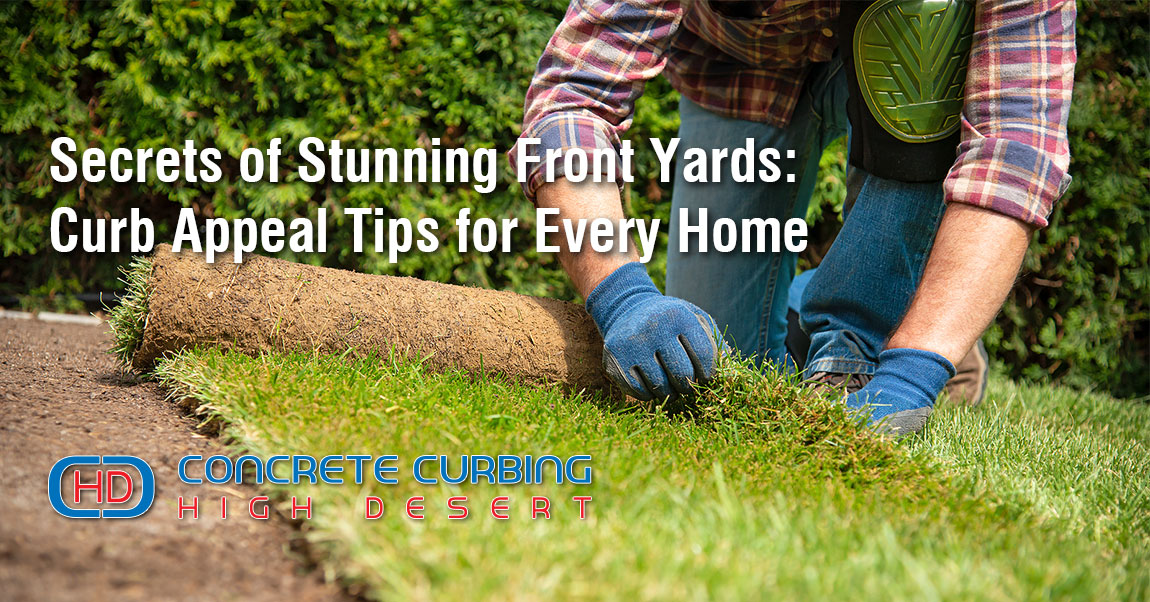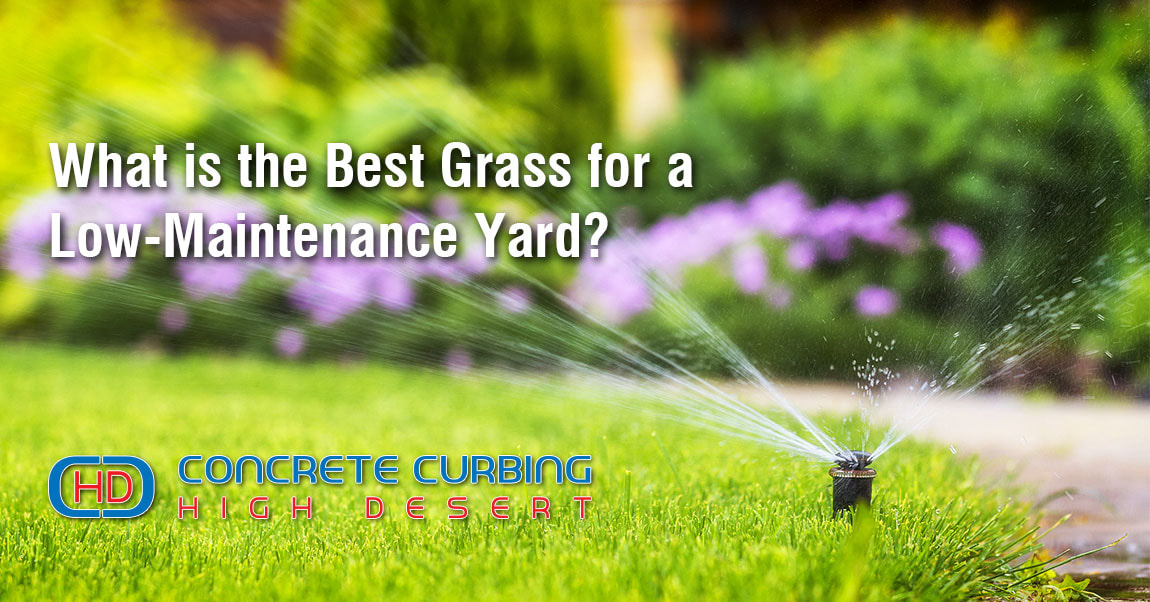|
Your backyard is more than just a patch of land—it is an opportunity to create a green oasis where you can relax, play, and connect with nature. One of the key elements in this transformation is natural grass. In this article, we will explore why natural grass is the heart of your green oasis, provide a step-by-step guide to grass installation, share tips for nurturing your natural grass paradise, offer landscaping ideas, and discuss sustainable practices. Let us dive in! Why Natural Grass is the Heart of Your Green Oasis Benefits of Natural Grass Natural grass offers numerous benefits for your outdoor space:
Natural Grass vs. Artificial Turf While artificial turf has gained popularity, natural grass remains a top choice for several reasons:
A Step-by-Step Guide to Grass Installation 1. Prepare the Soil:
Nurturing Your Natural Grass Paradise
Mulch Magic: Elevate Your Outdoor Living Enhance your green oasis with these landscaping ideas:
Sustainable Landscaping Practices
Conclusion Transforming your yard with natural grass is a rewarding journey. For professional natural grass installation services in High Desert, California, look no further than Concrete Curbing HD. Contact us at (760) 486-7709 to create your own green oasis. We proudly serve Victorville, Apple Valley, Hesperia, Barstow, Baldy Mesa, Phelan, Oak Hills, Adelanto, and other nearby areas. Additionally, our services extend to cities like Temecula, Rancho Cucamonga, Fontana, Rialto, Ontario, Uplands, Redlands, Chino, and Palmdale. Let us make your yard a true paradise! In the hustle and bustle of modern life, maintaining a lush and beautiful landscape can feel like an overwhelming task. However, there’s good news for busy homeowners: low-maintenance landscaping is the key to achieving an elegant outdoor space without sacrificing precious time and resources. In this article, we’ll explore the art of creating a stunning landscape that requires minimal effort while enhancing the curb appeal of your home. Embrace the Power of Low-Maintenance Landscaping Low-maintenance landscaping offers several benefits for homeowners with busy schedules. By strategically selecting plants, materials, and design elements, you can significantly reduce the time and effort needed to keep your outdoor space looking its best. Whether you’re a working professional, a parent, or simply someone who prefers leisure over yard work, these ideas will help you achieve effortless elegance. Modern Landscaping Ideas for a Timeless Look Modern homes deserve landscapes that complement their architectural style. Consider incorporating the following design elements:
Subheading 3: Drought-Tolerant Delights: Unveiling Water-Wise Gardening Gems Drought-tolerant plants are a game-changer for low-maintenance landscapes. These hardy gems thrive with minimal watering, making them perfect for arid climates or water-conscious homeowners. Some excellent choices include:
Mulch Magic: Your Secret Weapon for Effortless Elegance Mulch isn’t just for aesthetics—it is a practical tool that simplifies landscaping maintenance. Here’s why mulch is your ally:
Beyond the Green: Creative Hardscaping for Modern Flair Hardscaping elements add structure and visual interest to your landscape. Consider these options:
Conclusion Achieving an elegant landscape does not have to be a time-consuming endeavor. By embracing low-maintenance strategies, incorporating modern design elements, and choosing drought-tolerant plants, you can create an outdoor oasis that enhances your home’s beauty effortlessly. Ready to transform your landscape? Contact Concrete Curbing HD at (760) 486-7709. We provide top-notch landscaping services in the High Desert, California, and surrounding areas, including Victorville, Apple Valley, Hesperia, Barstow, Baldy Mesa, Phelan, Oak Hills, and Adelanto. We also serve cities like Temecula, Rancho Cucamonga, Fontana, Rialto, Ontario, Uplands, Redlands, Chino, and Palmdale. Let us create an elegant and hassle-free outdoor space together! Tired of Weekend Yard Work? Say Hello to a Low-Maintenance Yard with Artificial Grass! For many homeowners, the perfect weekend dream doesn’t involve spending hours pushing a mower under the scorching sun. But keeping a real lawn lush and green can be a time-consuming and expensive chore. That’s where artificial grass comes in! Artificial grass offers a fantastic alternative to traditional lawns, providing a beautiful, green space that requires minimal maintenance. Is artificial grass right for you? Let’s explore the many benefits of artificial turf and see how it can transform your weekends! Ditch the Mower, Embrace Your Free Time: How Artificial Grass Takes the Weekend Grind Out of Lawn Care Imagine a Saturday morning where you can sleep in, enjoy a leisurely breakfast, and spend quality time with family and friends, instead of wrestling with a lawnmower. Artificial grass eliminates the need for mowing, edging, and trimming. This frees up countless hours each week, allowing you to pursue your hobbies, relax by the pool, or simply enjoy a stress-free weekend. Slash Your Lawn Care Costs and Keep a Lush Green Yard: The Financial Advantages of Artificial Grass The cost of artificial grass installation may seem like a significant upfront investment. However, when compared to the ongoing expenses of traditional lawn care, artificial turf offers significant financial advantages. You’ll save money on:
Over time, these savings can add up considerably, making artificial grass a cost-effective option in the long run. Low Maintenance Doesn’t Mean Low Beauty: Unveiling the Easy Care of Artificial Lawns Gone are the days of battling mud patches and dead spots in your lawn. Artificial grass offers a consistently lush, green appearance throughout the year, regardless of the season. And the best part? Maintaining its beauty is a breeze. An occasional hosing down to remove debris is all it takes to keep your artificial lawn looking its best. Weekend Warrior or Busy Bee? How Artificial Grass Caters to Every Lifestyle Whether you’re a busy professional or an active family with limited free time, artificial grass can significantly improve your quality of life. With minimal maintenance required, you can reclaim your weekends and spend your precious time on the things that matter most. Beyond the Green Keeper: Reclaim Your Weekends with the Investment of Artificial Grass Artificial grass isn’t just about saving time and money on lawn care – it’s about investing in your leisure time and overall well-being. Imagine the possibilities:
Need Artificial Grass Installation? Contact Concrete Curbing HD Today! At Concrete Curbing HD, we are experts in artificial grass installation. We offer high-quality turf products and professional installation services to transform your yard into a beautiful, low-maintenance oasis. We proudly serve the High Desert and surrounding areas, including Victorville, Apple Valley, Hesperia, Barstow, Baldy Mesa, Phelan, Oak Hills, and Adelanto. In addition, we service the California cities of Temecula, Rancho Cucamonga, Fontana, Rialto, Ontario, Uplands, Redlands, Chino, and Palmdale. Don’t wait any longer to reclaim your weekends and enjoy a low-maintenance yard! Contact Concrete Curbing HD today at (760) 486-7709 for a free consultation. Your front yard is the very first impression your home makes. It is the welcome mat to your world, and like a friendly smile, it should be inviting and attractive. But do not worry, creating a show-stopping front yard does not require a landscape architect or a bottomless budget. This guide is packed with curb appeal tips, front yard landscaping ideas, and design secrets to help you transform your outdoor space, no matter your style or resources. Lush Landscaping: Elevating Your Front Yard with Greenery The foundation of a beautiful front yard is greenery. Natural grass is a classic choice, offering cool green tones and a soft, inviting texture. But what if your climate or lifestyle does not suit a traditional lawn? Artificial grass provides a low-maintenance alternative that stays green year-round. This is a great option for busy homeowners or those in drought-prone areas. Budget-Friendly Magic: Designing a Gorgeous Front Yard on a Shoestring Even with a limited budget, you can create a stunning front yard. Mulch is a budget-friendly way to define planting beds and suppress weeds. Filling these beds with colorful perennials or low-maintenance shrubs adds a pop of color and life without breaking the bank. For an extra touch, consider using recycled materials like old tires or wine bottles to create unique planters. Effortless Elegance: Low Maintenance Front Yard Landscaping For those who crave a beautiful yard but do not have a lot of time for upkeep, low-maintenance landscaping is the key. Drought-resistant plants like succulents and ornamental grasses thrive with minimal watering. Decorative rocks add visual interest and help suppress weeds, further reducing maintenance needs. Welcoming Pathways: Front Yard Walkway Ideas and Porch Decor A well-defined walkway guides visitors to your front door and creates a sense of arrival. Concrete walkways are a durable and affordable option, while concrete curbing adds a polished touch. Pavers offer a more customized look and come in a variety of colors and styles. Do not forget the power of porch decor! A colorful doormat, potted plants, and a welcoming wreath add personality and enhance your home’s curb appeal. Unique Curb Appeal Ideas For those who want their front yard to stand out from the crowd, there are endless possibilities. A small water feature adds a touch of serenity, while a strategically placed birdbath attracts feathered friends. Solar-powered lights illuminate your walkway at night, adding beauty and safety. Transform Your High Desert Oasis Ready to create a stunning front yard that reflects your unique style? Concrete Curbing HD can help! We offer a variety of front yard landscaping services in the High Desert and surrounding areas, including Victorville, Apple Valley, Hesperia, and beyond. We also service Temecula, Rancho Cucamonga, and other California cities. Call Concrete Curbing HD today at (760) 486-7709 to discuss your vision and unlock the secrets of a stunning front yard. Watering Woes? Unveiling Drought-Resistant Champions Maintaining a lush, green lawn does not have to be a constant battle against wilting blades and parched soil. If you are tired of spending hours with a hose in hand, fret not! We’ve got your back with a selection of low-maintenance grasses that thrive even in California’s arid climate. 1. Buffalo Grass (Bouteloua dactyloides)
2. Zoysia Grass (Zoysia spp.)
3. Bermuda Grass (Cynodon dactylon)
Mow Less, Enjoy More: Unveiling Low-Maintenance Grasses with Slow Growth 1. Fine Fescue Blend (Festuca spp.)
2. Centipede Grass (Eremochloa ophiuroides)
Cost-Conscious Choices: Budget-Friendly Grasses for Your Yard 1. Perennial Ryegrass (Lolium perenne)
2. Kentucky Bluegrass (Poa pratensis)
Conclusion When it comes to a low-maintenance lawn, choose wisely. Consider your climate, soil type, and desired level of effort. Whether you are a busy homeowner or simply prefer more leisurely weekends, there is a grass variety that suits your lifestyle. Need Grass Installation? Contact Concrete Curbing HD at (760) 486-7709. We offer our services in the High Desert and surrounding areas, including Victorville, Apple Valley, Hesperia, Barstow, Baldy Mesa, Phelan, Oak Hills, and Adelanto. Additionally, we serve the California cities of Temecula, Rancho Cucamonga, Fontana, Rialto, Ontario, Uplands, Redlands, Chino, and Palmdale. |
Concrete Curbing HDAs a top-rated Rockscape & Grass landscape company in High Desert, Concrete Curbing HD is dedicated to providing the most affordable solutions for your landscaping and concrete needs. We guarantee that all of our materials and landscape experts will deliver the highest quality in service and in design, no matter what. To get invested with the landscaping project of your dreams, get in touch with us now! You can call us at (760) 486-7709 to speak with a qualified representative. We’re excited to get started! Categories
All
Archives
April 2024
|
|
Victorville, CA 92395
|
(760) 486-7709
LICENSED • BONDED |
© 2024 Concrete Curbing High Desert • The content on this website is owned by us and All artwork copyright by respective artists, photographers and our licensors.
Do not copy any content including images without our consent.
Do not copy any content including images without our consent.
Website Design & Maintained by: SenirDesign.com







